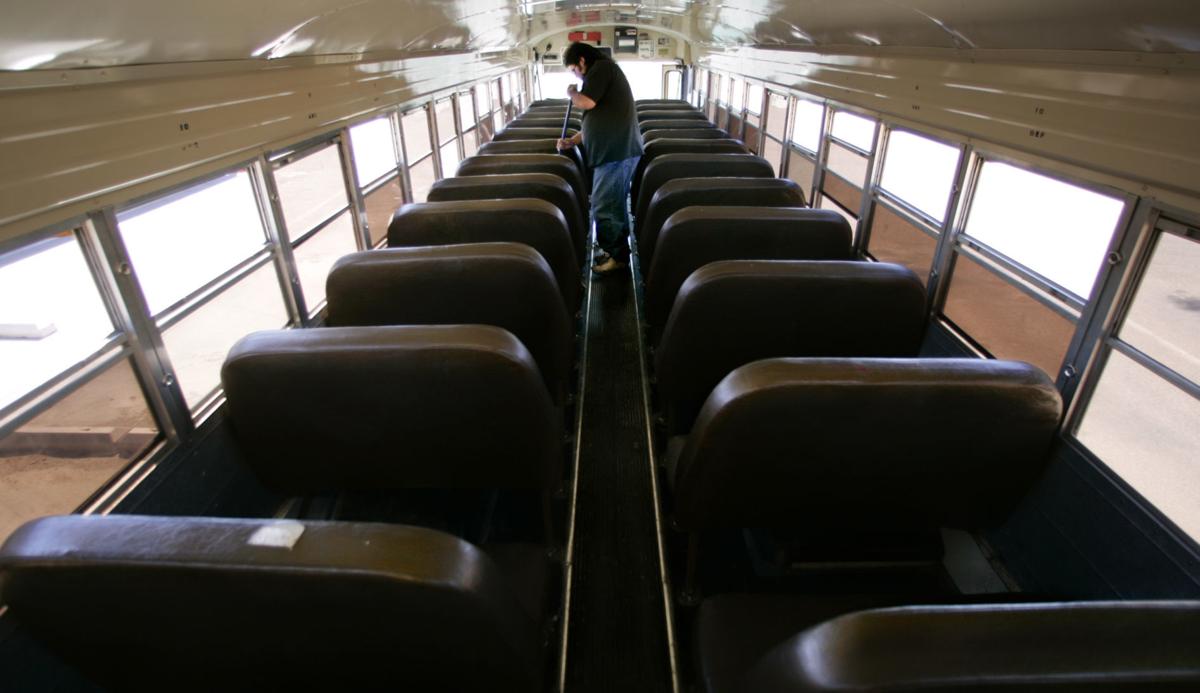A lack of oversight in the Sunnyside Unified School District’s transportation department put student safety at risk, with drivers not meeting certification requirements and buses not being properly maintained, a performance audit found.
The review, conducted by the Arizona Auditor General’s Office, also found:
- Unauthorized spending by staff and governing board members;
- A lack of adequate computer and accounting controls, which put the district at risk for fraud by unnecessarily granting access to certain employees to perform payroll and purchasing functions, and mistakingly under- or over-paying at least three employees;
- And the operation of a public cafe that may have resulted in spending that otherwise could have been directed at students.
Sunnyside, Tucson’s second largest school district with more than 15,000 students, agreed with the findings in the Auditor General’s review and committed to implementing recommendations made within the report, which was released Friday, Dec. 27.
“The information provided has given us an opportunity to make improvements and corrections that will result in improved efficiency, transparency and compliance,” Sunnyside Superintendent Steve Holmes said in a letter to Auditor General Lindsey Perry.
Among the various audit findings, the one that most directly affected students related to the transportation department.
Arizona requires school districts to regularly perform preventative maintenance like periodic oil changes, tire and brake inspections, and inspections of safety signals and emergency exits on buses to ensure student safety and to extend the life of the buses.
However, a review of 10 of Sunnyside’s 92 buses found no complete documentation of preventative maintenance. Of those, Arizona Department of Public Safety records show violations for eight, two of which had at least one significant violation that required the buses to be pulled from service.
The state also requires that bus drivers possess a valid commercial driver’s license, receive physical examinations, undergo drug and alcohol testing, physical performance tests, CPR and first aid certification and refresher training.
However, a review of 14% of Sunnyside’s bus drivers found lapses in CPR certification, physical performance tests and refresher trainings.
The district has committed to using an electronic database to track driver certification requirements, and to establish policy outlining maintenance requirements at specific intervals and using software to log maintenance.
UNAUTHORIZED SPENDING
The audit, which focused primarily on fiscal year 2018, also found unauthorized spending of nearly $500 by two unidentified governing board members — one current and one former.
Sunnyside provides board members with district credit cards to pay for allowable expenses like lodging and food while traveling on official business. Any unsupported expenses are to be repaid.
However, district officials said some board members regularly charged expenses while traveling without providing supporting documentation as required. In one case, Sunnyside was aware of unauthorized spending by a former board member who exceeded the daily maximum allowable meal reimbursement rate and did not provide a receipt. Auditors were also provided documentation of other unauthorized spending by the former board member for a total of $221, which hadn’t been repaid as of November. Another $267 in unauthorized spending was identified for a current board member, who also hadn’t reimbursed the district at the time.
The audit called for revoking credit card privileges, which is already established in district policy. However, board members were not required to sign a credit card user agreement that outlines the terms.
Sunnyside agreed to suspend credit card use until the debts were repaid in full, which the district says occurred for both the former and current board members on Dec. 20.
Sunnyside’s failure to have board members and staffers fill out agreements has resulted in a financial investigation, the audit said.
The investigation is specific to disclosing conflicts of interest regarding contracts, services and district actions. However, some employees did not complete the disclosure form and months later, officials found a potential conflict of interest, which is now being reviewed by the Auditor General’s Office. No further information about the incident was revealed in the audit.
Another form of unauthorized spending was found among staff members who failed to get proper approval to make purchases. Although none of the purchases were found to be inappropriate, preauthorization ensures that purchases are appropriate and that the district has money in the budget, the audit report said.
The audit also noted concerns about handling cash from student activities and fundraisers, saying there were not adequate controls to ensure that money collected was properly deposited and accounted for.
SUNNYSIDE CAFE
A cafe operated out of Sunnyside’s district office, serving employees and the public, also drew scrutiny from the Auditor General’s Office. State statute only permits providing food and drinks under certain circumstances and Sunnyside had no evidence of ever receiving such permission.
The food is provided by a vendor contracted by Sunnyside that operates the district’s food service program.
The audit said Sunnyside should stop providing food for the cafe, and for internal trainings, and noted that because the district failed to track the cost of providing food for the internal events and cafe, as well as staff time, there is no way of knowing if Sunnyside broke even or if it has been spending money to support such activities that otherwise would be directed to students.
Sunnyside said it would follow the audit’s recommendation and is seeking legal advice for further direction.
Despite the various findings, the Auditor General’s Office noted bright spots within Sunnyside, including:
- Sunnyside spends a similar amount per student on administration as its peers on average.
- Sunnyside’s spending on plant operations was similar to its peers because the district has put into place efficient practices.
- Within the transportation department, Sunnyside employed efficient practices to keep spending low, including eliminating nonessential positions and using transportation employees in other capacities when they’re not driving.





